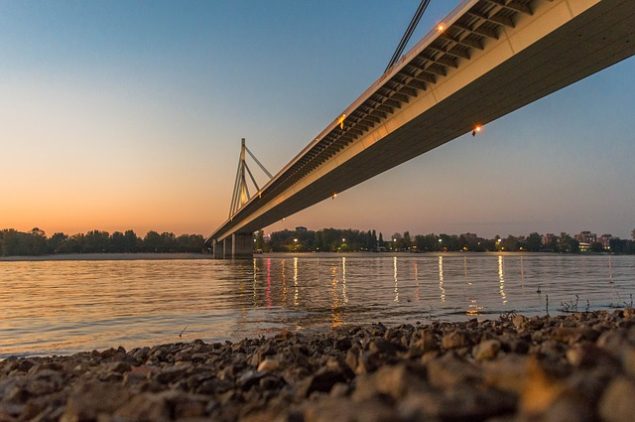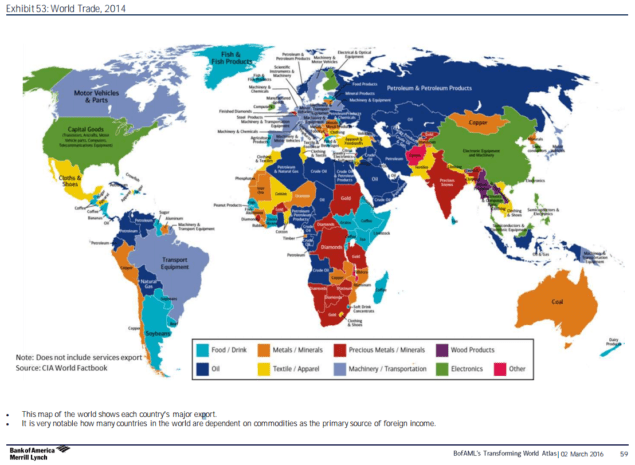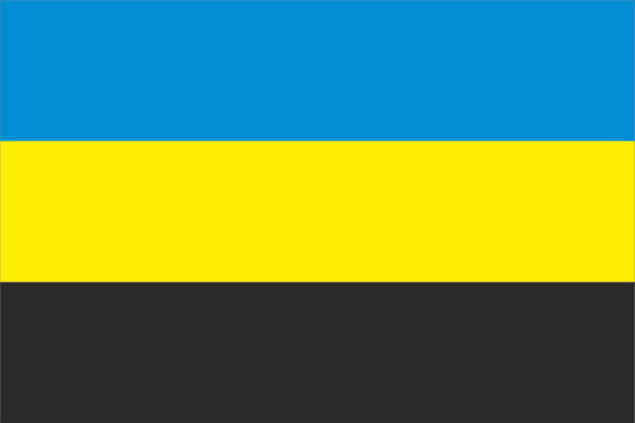Branimir Ćurčić: ‘Poor Privatization Policy Was Serbia’s Major Mistake’
28.03.2016 In December last year, Serbia has received an invitation to accession negotiations with the European Union. Ten years ago, it seemed next to impossible, as the government led by “moderate nationalist” Vojislav Kostunica clashed with Brussels over the Kosovo issue. In what state did Serbia arrive to this edge ? How strong is the influence of Russia? What mistakes in reform policies should have been avoided? NEWSSKY talks to the young Belgrade economist Branimir Ćurčić.
In December last year, Serbia has received an invitation to accession negotiations with the European Union. Ten years ago, it seemed next to impossible, as the government led by “moderate nationalist” Vojislav Kostunica clashed with Brussels over the Kosovo issue. In what state did Serbia arrive to this edge ? How strong is the influence of Russia? What mistakes in reform policies should have been avoided? NEWSSKY talks to the young Belgrade economist Branimir Ćurčić.
Branimir, is it possible to say, that Serbia by now is firmly on its way to EU — that it won’t suddenly become a member of the Eurasian Union?
Yes, EU integration has been main goal of Serbian foreign policy since October 2000 revolution (the Bulldozer Revolution). It is not likely that the course of present foreign policy will change anytime soon.
Russophile experts tend to assume that current government in Belgrade is only verbally “friendly” or “brotherly” (whatever that might mean), but in fact it’s infiltrated by ‘Western agents’, which drag Serbia out of Russian influence. How credible such assumptions are?
There is a lot of lobbying by both parties. Certainly, West doesn’t prefer strong Russian influence in the area (as well as anywhere else). It is clear that Serbia is greatest ally of Russia in region, as well that Russia is perhaps the most important ally of Serbia, but despite that it is my opinion that we are not too much under Russian influence anyway. In my opinion there is no infiltration of “Western agents” as such, but more of a financial support for organizations that are in favor of the West.
What’s happening with Serbia’s economy since it has moved closer to the EU?
Transition that started in year 2000 hasn’t been finished yet. Current GDP is about 68% of what it used to be in 1989. In previous years most of the foreign investments comes from EU, and most of Serbian export goes to EU. Poor results of economy is a combination of many factors and it is a special topic for analysis.
Is Serbia a market economy and whether liberal economic reforms have been ever tried? Is it feasible in Serbia to conduct any ‘small government’, i.e. Libertarian transformations?
Very first thing that democratic government that came to power after the 2000 revolution has done – was liberalization. In particular it was applying “Washington consensus” to the economy and conducting transition in that manner. It did not work out quite well, transition (i.e. privatization) is not yet over and the whole process has been followed by corruption which led to many problems we face to the present date.
I would say that the current government is somewhat pro-Liberal oriented as there is a plan to privatize electric power industry which is state owned monopoly as well as Serbian Telecom which is the largest telecom services provider in country (and not a monopoly – it is successfully competing with other providers). It is to be seen what is going to happen with this initiative but general public is more against it.
What are risks of any new Balkan conflict — are there noticeable political parties calling upon bringing Serbia back to Stephan Dushan borders or on Albanians to create some sort of a ‘Great Albania’?
As of risks for new Balkan conflict, they are minimal. There is neither a single party in the parliament, nor a prominent politician nor party “preaching” these ideas.
For Albanians, I really don’t know. Their parties in Serbia don’t have such aspirations as far as I know, but you should ask someone from Albania as I have no knowledge of their political situation there.
Are at least some of those politicians who emerged out of the Bulldozer Revolution back in 2000 — still present at the stage?
Yes. Many of them are. Most of them are in the opposition today. The current PM was involved in governments during 90s, and the Minister of Foreign Affairs (former PM) has been among the closest associates of Slobodan Milosevic… But they are all ‘pro EU’ now. That makes revolution back in 2000 kind of pointless, right?
Finally, what mistakes might have Serbia done after the revolution, which could have been evaded?
In my opinion the greatest mistake was poorly introduced privatization. It allowed those close to officials and their parties to buy companies cheaply neither with intention to invest nor continue production but with sole goal to squeeze capital out by activities such as selling land and equipment, afterwards laying off workers and going bankrupt. That could have been prevented by proper regulation and laws penalizing such unlawful activities. The privatization was planned to be done quickly (in course of 3-5 years) however, after 16 years it still is not over.
Russian version is at available at Fraza.ua



